⚽️ Cornwall Football: St Mawgan FC: The village side making steady, sustainable progress
What do a Royal Air Force station, a caravan park and a Japanese garden have in common? They are all within a stone's throw of St Mawgan FC, a village football club that continues to grow...
Welcome to the latest edition of the Cornwall Football newsletter.
The response so far has been fantastic – thanks to all who have subscribed and shared.
We’d love to hear from businesses interested in becoming a Cornwall Football newsletter headline sponsor.
Twice a week, the newsletter drops straight into the email inboxes of our rapidly growing audience, where it is opened and read enthusiastically by a high proportion of recipients.
If you’re interested in reaching those readers, and supporting us in our quest to promote local football, please drop us an email at: info@cornwallsportsmedia.co.uk
⬇️ Inside today’s newsletter ⬇️
⚽️ St Mawgan FC: The village side making steady, sustainable progress
👎 Falmouth and Torpoint suffer defeat in midweek
🍕 Why the Papa Johns Trophy is not a back door into the EFL for Premier League B teams
👀 What’s on this weekend
⚽️ St Mawgan FC: The village side making steady, sustainable progress
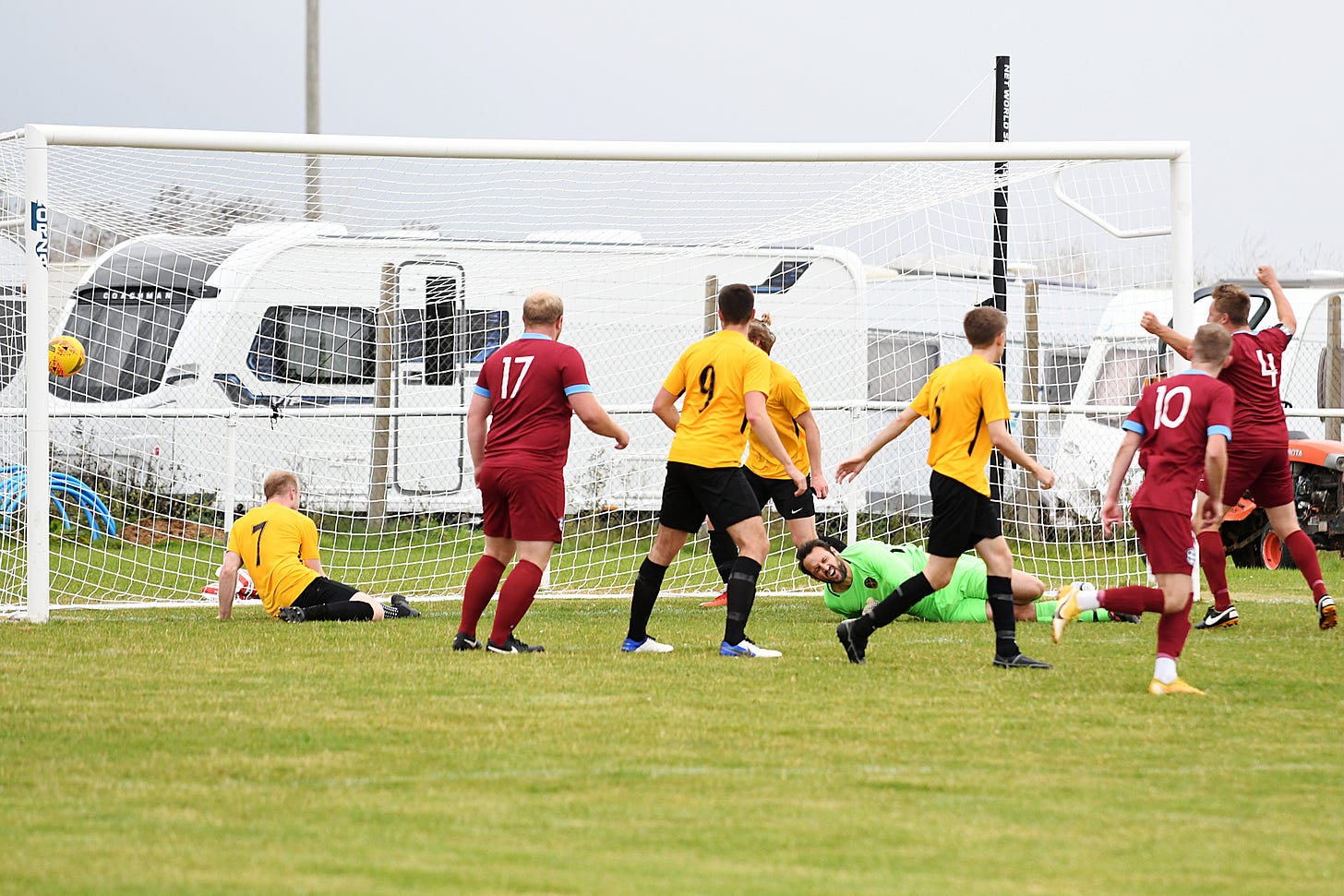
By Tom Howe
St Mawgan is a small village in Cornwall with a lot going on. There is big industry, with the nearby Royal Air Force station and Newquay Airport, and plenty of history too thanks to Lanherne House and its famous occupants, the Arundell family.
Mixed between the parish church, craft shop and, wait for it, a Japanese Garden attraction, is a football club that continues to grow exponentially for players across a range of different levels.
First team player/manager Ash Bicknell, himself from a famous family in the local football fraternity, is one of the catalysts behind the march of the Saints, who ply their trade within the grounds of Trevarrian Holiday Park.
A short foray past the caravans, the indoor swimming pool and the bowling centre affords a glimpse at a new changing room / clubhouse facility in the process of being built, as well as a brand new 50-seater stand, all part of the latest phase of an honest commitment to update and improve the club’s facilities.
“We are trying to meet the gradings of the FA so that we can facilitate as high a standard of football as we possibly can,” Bicknell told Cornwall Sports Media. “This is my sixth season as manager. My aim was always about how far we could take this bunch of players and how we could enable the youth a pathway into the adult game.
“Between myself and the chairman [Jamie Phillips], it was about what we could put in place to keep the players we have and develop the youth set-up, how can we sustain two men’s teams and what sort of standard we can push them to. These things off the pitch help attract players and keep the ones that we have got. It keeps the St Mawgan conversation alive.
“The more we are progressing with things at the club, the more recognition we are getting from other sides and supporters. We are in a small catchment area in which, if you are good enough, you go and play South West Peninsula football. There are also a lot of other clubs, be it in the Duchy League or whatever, situated around us.
“You have to have unique selling points to get these players over to your club. We take the approach to make sure the youth set up is as good as it can be, that our reserve side is at a point where they are competing in an enjoyable environment and the first team is pushing and competing in the league we are in. If you can get the facilities and everything else around the club right, then you will be able to attract players from around the area and improve.”
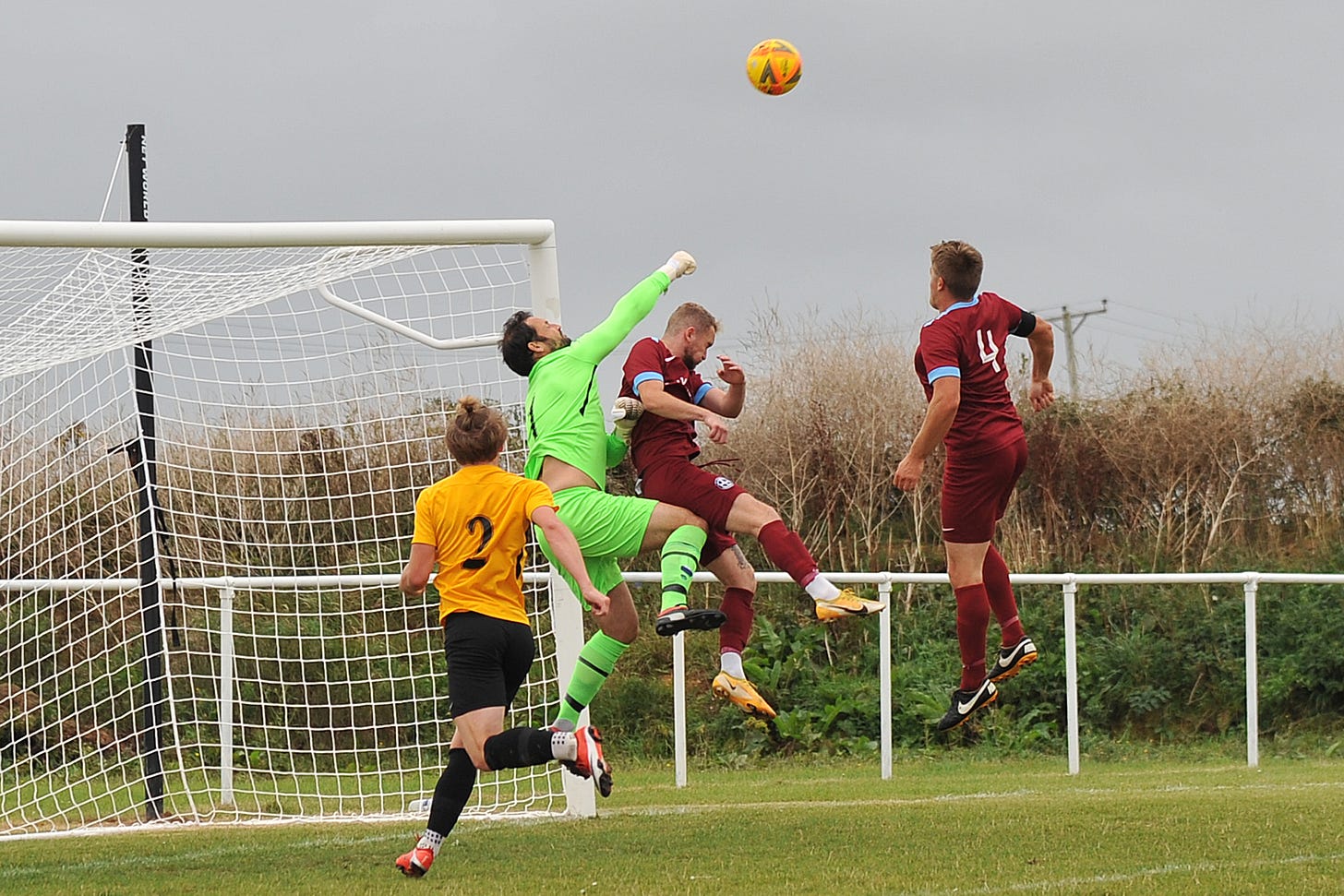
On the pitch, the last few seasons have brought cup final success and promotions to boot, with Bicknell himself steadily shaping a core squad of first team players with the old adage of blended experience and youth.
His side occupy sixth spot in the St Piran League East — the highest level of football in Cornwall below the National League System. With games in hand on each of the teams above them, they have ridden the storm of a stop-start campaign to carve out an unbeaten run that now stretches to some seven games.
“We have had a really mixed season,” reflected Bicknell. “We only played nine or ten times before Christmas and three of those we lost with the last kick of the game. The performances in a couple of games weren't good enough. That may have been because we hadn’t played for two or three weeks. Some performances probably warranted a lot more, though.
“In our last eight games however, we have only been beaten once. There is a bit of a run being put together. Performances of late, since we have been playing more regularly, have been much better and the relationship between the reserves [in Duchy Division One] and the first team is as good as it has been for a few years. Training with them means there is a pathway, which is something we have been building since our AGM last summer.
“There have been a few second team players who have stepped up and played first team football which creates a good feeling around the club. Our oldest youth side now is at under-16s so we only have to wait one more season for them to hopefully make their way into men’s football, too.
“All in all we can’t afford to have all these nice things off the pitch and allow ourselves to get distracted. We need to keep winning on the pitch and enjoying it. The big hurdle then is the summer, seeing where we finish in the leagues, what the facilities have to offer us, try to attract players and keep the better ones that we have got. We need to be in a position that the club is able to progress — if that is what we want — or to be stable if we want to stick around.”
📰 Sponsor this newsletter
Are you a business interested in supporting the Cornwall Football newsletter through sponsorship or advertising?
Drop us a message on: info@cornwallsportsmedia.co.uk and let’s talk.
👎 Falmouth and Torpoint suffer defeat in midweek
There were just two Cornish teams in action in the National League System in midweek, but neither side could produce a positive result as the Western League duo of Torpoint Athletic and Falmouth Town were beaten by Bridgwater United and Buckland Athletic respectively.
Title-challengers Saltash United, whose game at home to Barnstaple Town was called off, and Mousehole would have both been hoping that Dean Cardew’s Torpoint could inflict a fourth successive defeat on the stuttering Bridgwater, who sat in third before kick-off, but the Robins roared back to stroll to a comfortable victory…
⚽ Deflection: Breakthrough for United as Jack Thorne gets the ball off Tom Llewellyn, with his cross taking a deflection and looping over Point gloveman Jason Peters. 0-1 (7’)
⚽ Second: The Robins have their second as George King finds Jack Thorne in the middle, who turns and feeds Conor Hartley to slot it inside the near post. 0-2 (27’)
⚽ Game over?: Bridgwater have a third before the break as Hartley’s cross is flicked on by Thorne to Mark Armstrong, who prods the ball home. 0-3 (44’)
⚽ Comeback on?: Now then, Torpoint are back in this early in the second half. Tom Bath strikes the post with a header but Ryan Richards regains possession in the box and finds Bath, who taps the ball in. 1-3 (54’)
⚽ Win secured: It’s surely all over now though as Thorne bags the visitors’ fourth, finishing one-on-one after being played through by King. 1-4 (66’)
⚽ Repeat: The final flourish for the Somerset outfit is a second of the night for Thorne, who scores a carbon copy of his earlier goal. 1-5 (73’)
Conversely to Bridgwater, Falmouth have been in excellent form of late and had lost just once in their last 11 Western League outings prior to Tuesday night, but could not find a way past Buckland Athletic as they slumped to a 2-0 defeat at Homers Heath…
⚽ Bucks lead: Sam Morcom and Cieran Bridger combine for the latter to cross for Jared Lewington, who nods past stand-in Town custodian Morgan Coxhead. 1-0 (24’)
⚽ At the double: It’s a similar combination that leads to a delightful second for the hosts. Morcom, Bridger and Lewington link up around the Town box before the latter flicks the ball up and volleys it into the top corner. 2-0 (37’)
🍕 Why the Papa Johns Trophy is not a back door into the EFL for Premier League B teams
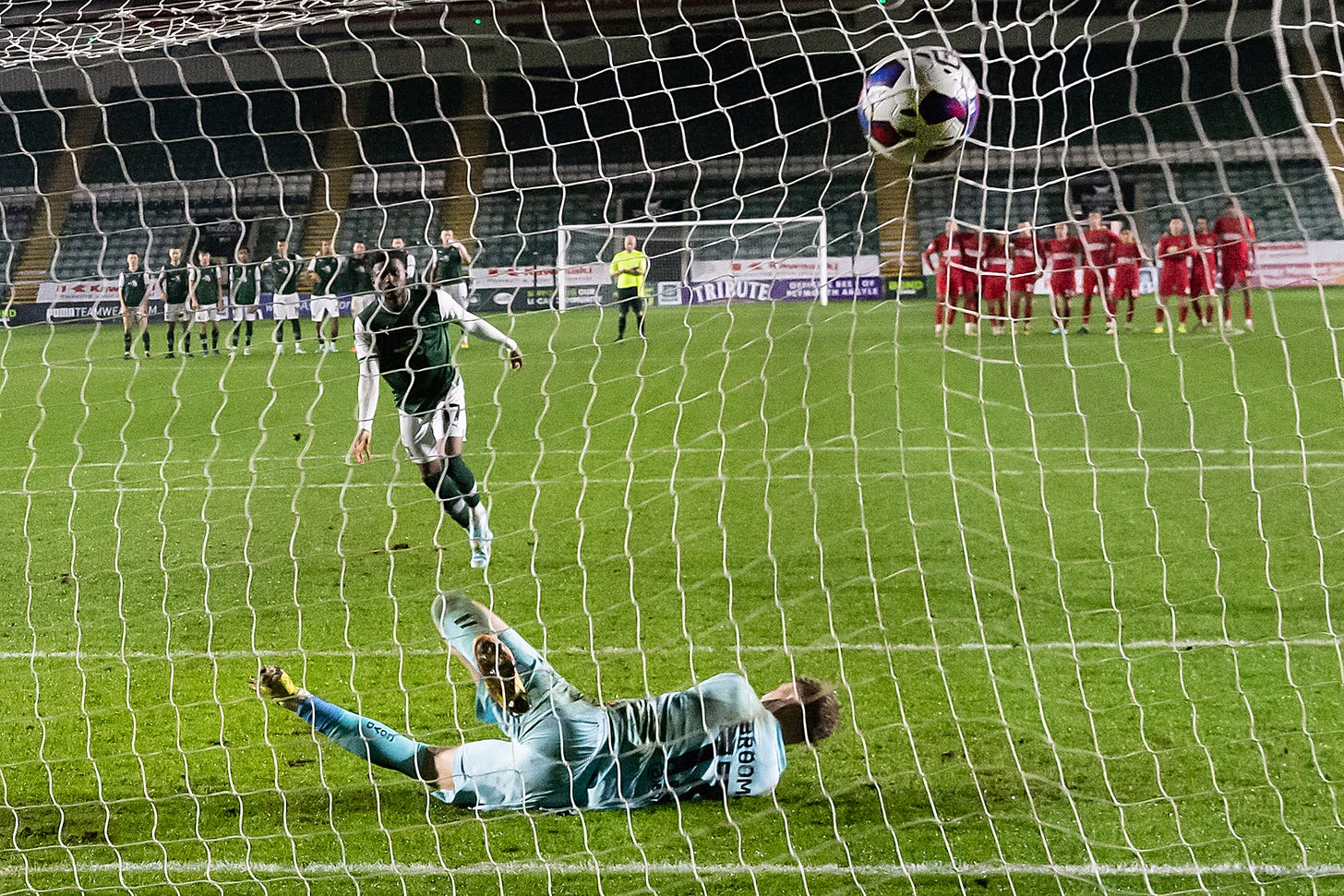
With Plymouth Argyle in the semi-final of the competition, we take an in-depth look at the controversy around the Papa Johns Trophy, leading many fans to stay away.
By Colin Bradbury
On February 21, Argyle face Cheltenham Town in the EFL Trophy semi-final for the prize of a historic trip to Wembley in April.
So you’d expect Home Park to be packed to the rafters that night with supporters from Devon, Cornwall and beyond. But the EFL Trophy, or Papa Johns Trophy as it is currently named, is different. Across the country, fans continue to boycott the competition as a protest against the involvement of Premier League academy and under-21 sides for the last seven years.
Some supporters object on principle to the presence of those teams in the competition. But others stay away out of concern that the competition represents a back door for the introduction of Premier League B teams into the EFL (and National League) pyramids.
This concern is certainly understandable, but is it justified? We thought it was time to strip the emotion out of the discussion and take a look at the facts.
To understand the current situation, we need to go back at the two events that caused the B team bogey to rear its ugly head in the first place.
First, in 2014 an FA committee report proposed B teams as a solution for perceived problems at the top of the English game. Secondly, in 2016, academy and under-21 teams were introduced into the (then) Checkatrade EFL Trophy competition for the forthcoming season. That coincided with the release of the EFL’s ‘Whole Game Solution’ document.
The 2014 FA report kicked off the whole controversy
Let’s start by winding the clock back nine years to that 2014 report by then FA Chairman, Greg Dyke and a committee consisting of such luminaries of the game as Roy Hodgson, Glenn Hoddle and Rio Ferdinand.
Dyke’s committee identified what they saw as a key problem with English football, namely the decline in the number of English players at the top level of the game. They claimed that this was partly thanks to ‘the lack of meaningful playing opportunities for English elite players in the final stages of their development.’
Tackling that would require ‘radical and ambitious proposals to change English football.’ The committee made four proposals in total, the most controversial of which was the introduction of Premier League B teams (youth development squads of top-flight clubs) into the ‘the lower divisions of the Football League.’
Making room for these new teams would require a complete and highly disruptive restructuring of the EFL. A new League Three would be introduced in the Football League structure, with all Premier League clubs given the choice of having a B team starting either in that division or the Conference (now National) League.
Unsurprisingly, EFL clubs and their supporters were overwhelmingly opposed to any such proposals. It didn’t help that the language in the FA committee’s report dripped with condescension towards the ‘lower-league’ clubs.
The proposed restructuring was justified on the grounds that it would be ‘in the interests of the professional football clubs who are spending millions of pounds on youth development programmes and are currently getting only a very limited return on their investment.’ The implication being that it’s the duty of clubs at all levels to help out the poor old Premier League teams that are spending all this money on developing young players.
The FA then delivered a patronising lecture to EFL clubs, asking them to ‘…balance the specific, narrowly-defined concerns of their particular club or league with what will be of the most benefit to the game overall, to the development of young English players and to the success of the England team.’
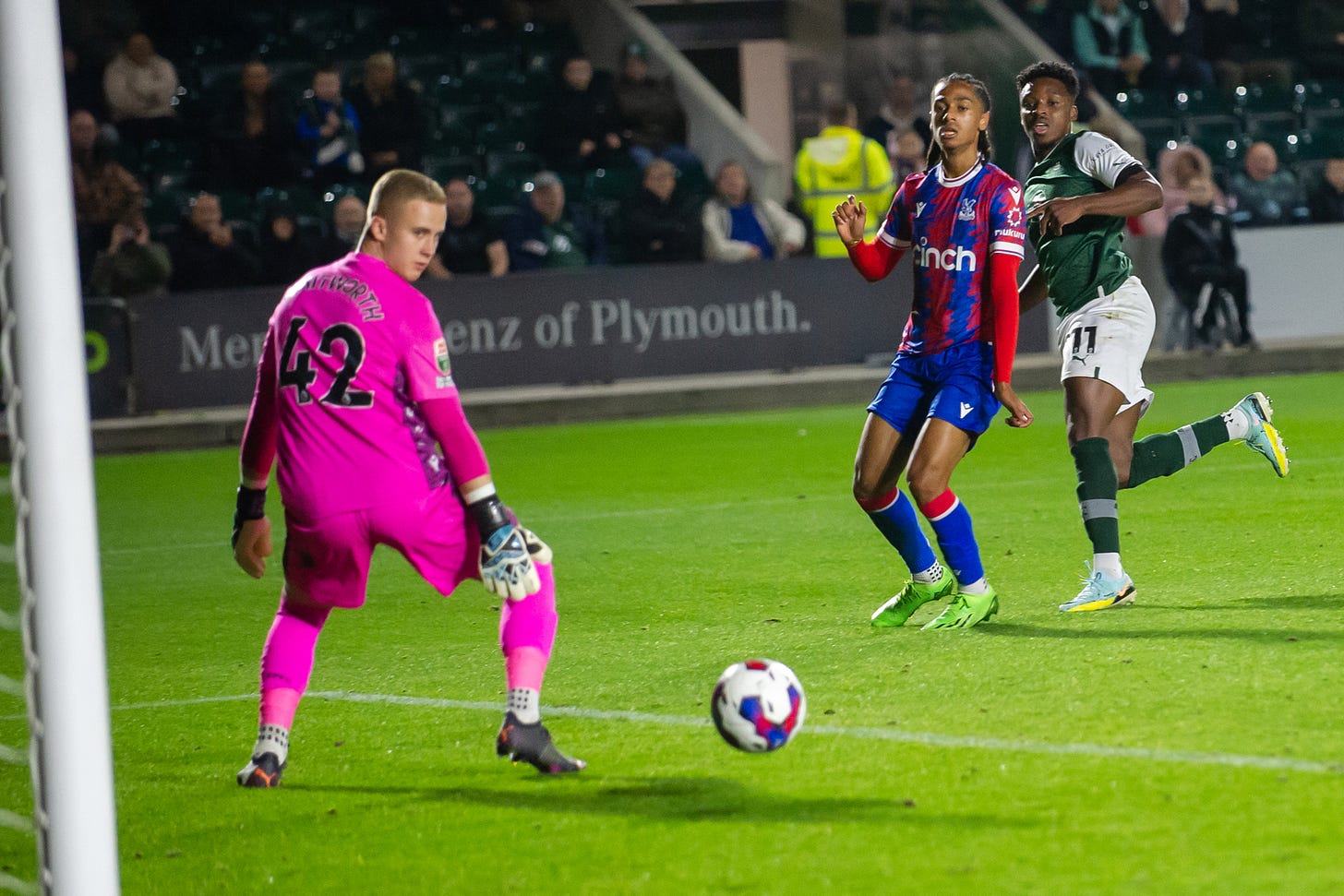
Safe to say that telling EFL and Conference clubs that by not rolling over and accepting the wrecking of their historic leagues they were selfishly standing in the way of something that will ‘benefit the game overall’, was not the best strategy for making friends.
The response to Dyke’s proposals from both supporters and clubs was overwhelmingly negative.
A May 2014 poll of its members by the Football Supporters Federation found that 86 per cent were against the idea of top-flight clubs having feeder sides in lower divisions.
"It's not just fans of Football League clubs who'll oppose this, we think most top-flight fans will too,” the FSF said. “Every club has its own identity, and the smallest club is every bit as important to its own fans as the biggest clubs are to their followers."
The EFL clubs themselves also showed zero enthusiasm for the plan, with many issuing statements forcefully rejecting the idea. It was no surprise then that at their next meeting the EFL formally rejected the B team proposal outright.
Three months later, Dyke himself appeared to accept that his plan was dead, saying (with some understatement): “It is clear that the overall reaction from many clubs was not favourable.”
In 2016, Dyke stepped down as FA Chairman, and no subsequent holder of the post has shown any interest in the B team idea.
The Whole Game Solution and the EFL Trophy reorganisation
All then went quiet until, in 2016, the EFL distributed a discussion document titled somewhat grandiosely the ‘Whole Game Solution’. Clubs were asked to consider the re-organisation of the domestic league system into five divisions of 20 teams from the 2019/20 season. Under the proposal, the Football League would become a four-division competition below the Premier League, including a new League Three, with 100 clubs competing across the professional game.
It's telling that B teams were not mentioned in this proposal, with the additional eight clubs (to take the total from 92 Premier League and EFL clubs to 100) expected to come from the National League.
However, just to make sure that their governing body was in no doubt where they stood, the EFL clubs got their retaliation in early. In September 2016 they re-stated their opposition to B teams, leading to the EFL confirming that ‘the inclusion of Premier League B Teams, clubs from non-English leagues or those outside the English football pyramid will not form part of any ongoing discussions for the Whole Game Solution.’
The B team idea had little or no support from the Premier League either. Its executive chairman, Richard Scudamore said that the proposals did not represent ‘the thin end of the wedge’.
“Yes, of course we know some of our clubs would like B teams,” he said. “We look abroad and we see the benefit of B teams. It’s just for the English football structure and pyramid, it doesn’t work, and so this is it. We can console all these worried Football League clubs’ supporters. This isn’t the thin end of the wedge; this is the block. It’s the beginning of the end of it.”
At which point the entire ‘Whole Game Solution’ plan died a quiet death, put out of its misery in November 2016 when discussions were officially closed.
And that, as far as B teams were concerned, would have been that. Except that around the time of the Whole Game Solution proposal, a restructuring of the 2016/17 EFL Trophy competition (then sponsored by Checkatrade) took place which led to the inclusion of 16 academy or under-21 sides from the Championship and Premier League alongside the 48 League One and Two clubs.
Such was the residual hostility to the 2014 Dyke report that many EFL supporters, quite understandably, put two and two together and got five, assuming that including academy clubs in the EFL Trophy was a ‘Trojan Horse’ for renewed efforts to get Premier League B Teams into the lower divisions. That is the origin of much of the current hostility towards the Papa Johns Trophy.
B teams in the EFL – Mission Impossible
However, the Trojan Horse theory really does not hold up to scrutiny for several reasons.
First, at the time of the Papa Johns Trophy reorganisation, both the EFL and the Premier League said explicitly that the B team idea was dead, and have shown no desire to resurrect it in the subsequent seven years.
Secondly, in 2017 the EFL specifically addressed concerns that the inclusion of academy sides into the (then Checkatrade) EFL Trophy was the precursor to allowing B teams into the EFL.
They said: “At the Checkatrade review meeting, the EFL reiterated the previously stated position that the introduction of academy teams or ‘B Teams’ to League competition is in no way connected to this competition and is not part of the League’s wider agenda.”
That seems like a pretty clear and final statement on the matter.
Thirdly, a number of Premier League clubs have said that they are not convinced that playing B teams in the lower divisions would do much to improve their talent pipeline anyway. Adding a few academy teams to the Papa Johns Trophy was presumably a way of giving some of the younger ‘elite’ players exposure to the rough, tough world of lower-league football, but it’s noticeable that no top-flight club has so far used that as a means to re-open the wider B team discussion. One suspects that they have much bigger issues on their plates right now.
Finally, any re-jigging of the league structure could not simply be imposed on clubs by the EFL (and certainly not by the Premier League). In 2016, the EFL chairman made it clear that reorganisation of the kind required to shoehorn B teams into the lower divisions would require the approval of 90 per cent of the 72 EFL clubs. The chances of getting 65 EFL clubs to vote for such a plan was vanishingly small then, and remains so today.
Changing the rules of the EFL Trophy to accommodate a few academy teams would prove to have been a walk-in-the-park compared to the administrative nightmare (and PR disaster) that would result from attempting to put those teams into the EFL structure.
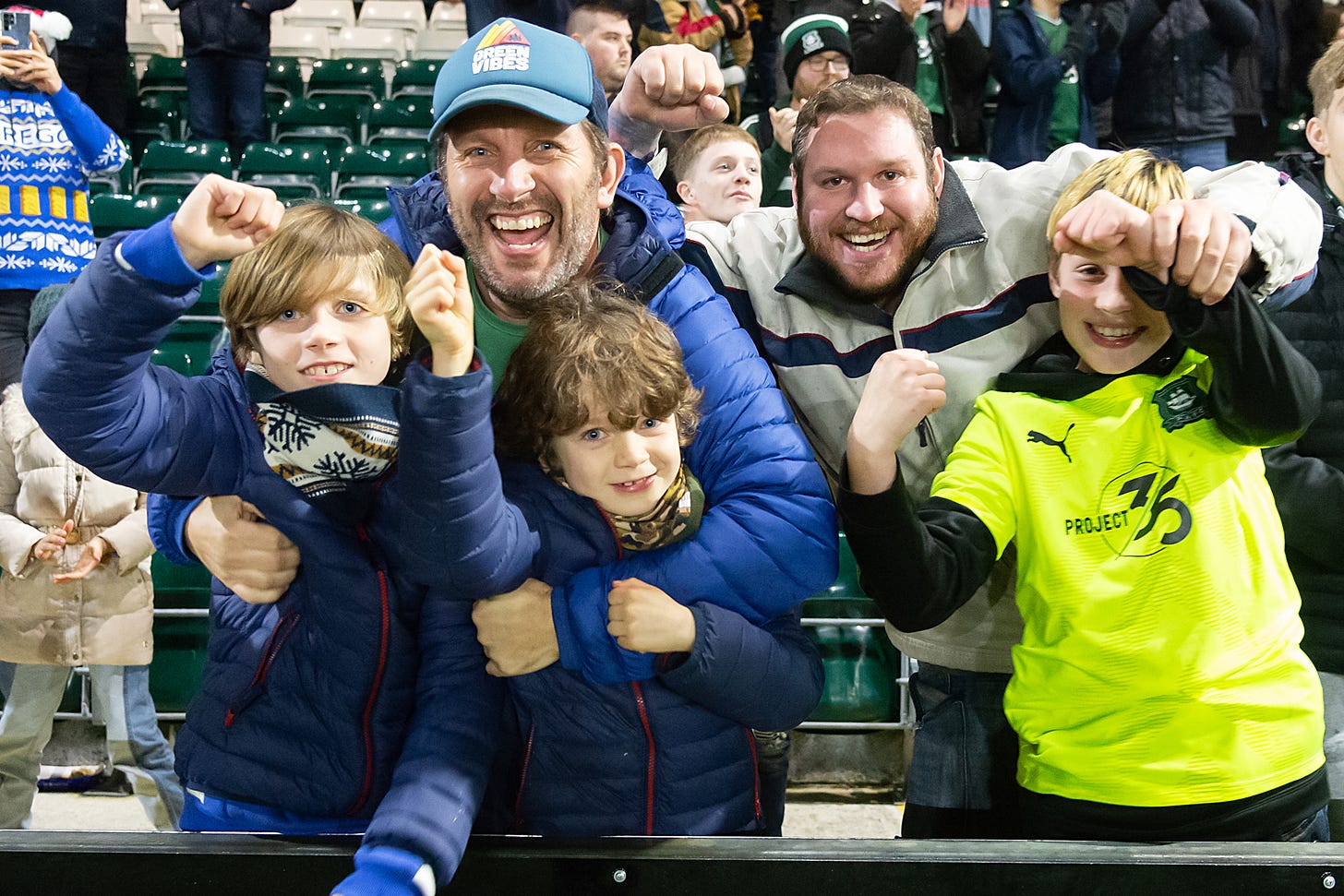
“The chances of B teams getting into the pyramid are zero.”
Nine years on from its first appearance, the B team idea has made absolutely no progress towards implementation. Dyke’s FA report sank without trace not long after it hit people’s desks and the EFL’s Whole Game Solution was kicked into the long grass just as quickly. Not one of the proposals has ever come within a million miles of being accepted in principle, let alone put into practice, by any of the parties that would need to be on board.
The bottom line is that none of the key players want B teams in the EFL. Against that backdrop, why would any governing body want to embark on a hugely time-consuming, disruptive, expensive, unpopular, and almost certainly doomed campaign to force B teams on an unwilling footballing community? It’s not hard to see why there has been no discussion of the topic for six years now, and there seems no reason to expect that to change.
Nevertheless, a sizeable body of EFL club supporters choose to stay away from Papa Johns Trophy fixtures because of B team issues.
To be clear, if supporters boycott the Papa Johns Trophy on the grounds that they simply object to the inclusion of academy teams in the competition, that is a perfectly legitimate position.
However, for all the reasons discussed above, staying away for fear that attendance will hasten the infiltration of B teams into the EFL league structure appears to be misguided.
We’ll leave the final word to Neil Dewsnip. Asked last month about the idea of B teams joining the EFL, Argyle’s director of football said: “The B team discussion has died the death. Every league would be anti — including the non-league teams. And the Premier League would like to continue down the Premier League 2 route, so they don’t support B teams anyway. There’s no way it would happen politically. The chances of B teams getting into the pyramid are zero.”
That’s good enough for us.
👀 What’s on this weekend
⚽️League One: Saturday, 3pm: Plymouth Argyle v Portsmouth.
⚽️Southern League Premier South: Saturday, 3pm: Gosport Borough v Truro City.
⚽️Western League: Saturday, 3pm (unless stated): Millbrook v Keynsham Town (2pm); Falmouth Town v Buckland Athletic; Helston Athletic v Street; Saltash United v Wellington; Torpoint Athletic v Clevedon Town; Welton Rovers v Mousehole.
⚽️South West Peninsula League Premier West: Saturday, 3pm: Bodmin Town v Penzance; Mullion v Sticker; Newquay v Camelford; St Austell v Launceston; St Blazey v Liskeard Athletic; Wendron United v Dobwalls.
⚽️FA Women’s National League Division One South West: Sunday, 2pm: Cardiff City v St Austell.
⚽️South West Regional Women’s Football League Premier Division: Sunday, 2pm: Torquay United v Liskeard Athletic.
⚽️South West Regional Women’s Football League Western Division: Sunday, 2pm: Saltash United v Marine Academy Plymouth; Sticker v Budleigh Salterton.
⚽️Cornwall Women’s Football League Division 1: Sunday, 2pm: Bude Town v Saltash Borough; FXSU v Bodmin; Mousehole v RNAS Culdrose.
⚽️Cornwall Women’s Football League Division 2: Sunday, 2pm (unless stated): Charlestown v St Agnes; Dropship v Wendron United (2.30pm); Redruth United v Penryn; Wadebridge Town v Padstow United (2.30pm).
📰 Sponsor this newsletter
Are you a business interested in supporting the Cornwall Football newsletter through sponsorship or advertising?
Drop us a message on: info@cornwallsportsmedia.co.uk and let’s talk.
See you on Monday!
Follow us on Twitter: @sportscornwall
Follow us on Facebook: @cornwallsportsmedia
Visit our website: cornwallsportsmedia.co.uk




